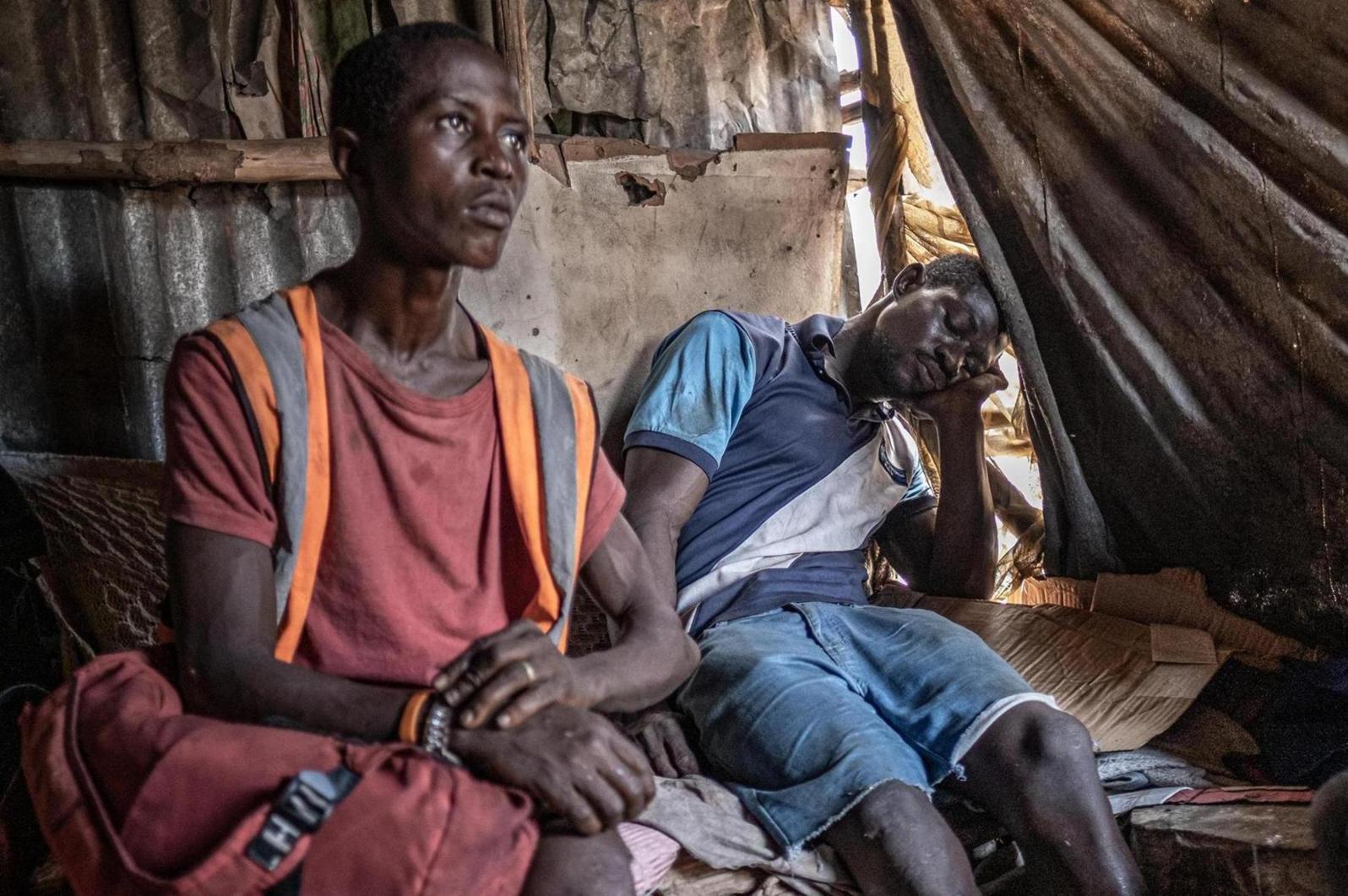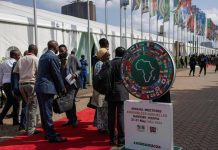writes Emma Etim
Africa-Press – Mauritius. At polling stations across Africa’s biggest democracy, intermediaries offer rice and phone credit to those willing to have their vote swayed.
Immediately after sunrise, a line forms outside a schoolyard-turned-polling station. A mother steadies a sleepy child, and an elderly farmer palms his voter card like a relic. By noon, murmurs travel faster than the queue: it has started. A party broker offers transport. Others propose a sack of rice. Someone promises to credit your phone if your thumb plays along. A young man shrugs and says, “Na rice sure pass. At least mek we hold dat one fess, who sabi tomorrow?” What looks like generosity is really a transaction; once you see the trade, the rest of the day makes sense.
Wretched thumbs is a harsh phrase that names a harsh reality. For millions of people navigating erratic power supplies, empty dispensaries, and precarious work, the inked thumb is briefly powerful yet painfully affordable. Nigerian politicians understand this. They convert scarcity into a campaign strategy, moving cash or food through local intermediaries who can promise that a queue will tilt towards them.
The 2023 election cycle showed two truths simultaneously. The Bi-Modal Voter Accreditation System (BVAS) for accreditation and the INEC Result Viewing Portal (IReV) for result viewing created glimpses of transparency and drew in a wave of younger voters. Yet, turnout sagged at 27 per cent, and old habits adapted. There were delays at some polling units, sudden pockets of intimidation, and inducements that went from envelopes to airtime and food. The pattern is consistent across regions. The poor are mobilised, not empowered; consent is bought, not earned.
These shortcuts do not just decide who wins; they shape how Nigeria is governed. Leaders who arrive owing favours to financiers and ward bosses spend their first months paying back those debts through padded contracts, political appointments, and quick, flashy projects that photograph well but fix little. Independent oversight weakens because the same networks that bought votes now guard against spoils. Citizens sense the stitch-up and either stay home the next time or retreat into ethnic and party strongholds. Over time, the state becomes less capable, budgets leak, insecurity festers, and the country’s political imagination shrinks to whatever can be traded by the next broker on the next election day.
Breaking the habit
First, the government and Independent National Electoral Commission (INEC) can make the trade risky and vote easy. Brazil prosecuted a handful of vote-buying and intimidation cases, publicly and promptly, to help reset norms.
Second, stress-test BVAS and publish unit-level forms quickly so that citizens can help audit IReV. Fix the basics that sap trust, such as late openings, confused procedures, and drill presiding officers on best practice, and run real-time help desks. Upstream, tighten party primaries and campaign-finance disclosures so that the money that buys thumbs is harder to raise and easier to trace.
Third, civil society has a role to play. We should scale parallel vote tabulation and track attempts at inducement on digital public dashboards that can be quoted. Swap sermonising for support. On election day, pair observers with lawyers on rapid-response hotlines so evidence survives and cases stick. While there are commendable “I won’t sell my vote” pledges, these should be backed by tangible benefits. As counterintuitive as this may sound, we need to make voting with their conscience worth its while for people.
Fourth, community leaders should reset the local norms where the deals are struck. Traditional rulers, market heads, and faith leaders can host pre-election covenants that denounce inducement and violence across parties and convene “results peace circles” after tallying to cool tempers.
Fifth, social media activists should favour verification over virality. Share short, lawful videos of posted result sheets and geotag incident logs, but run a quick rumour-triage checklist before amplification. Push hyper-local updates, including opening times, queue length, and accessibility notes, on social media to help caregivers and people with disabilities time their arrival, cutting the long waits.
No single lever is sufficient. Technology without trust fails, law without examples is noise, and preaching without alternatives is cruel. The fix is a braid of all three: machines that work, courts that bite, and communities that make clean voting both honourable and feasible. Reform, in other words, must be practical (open on time), visible (publish the forms), and felt (give people reasons to value their vote more than the quick fixes on offer in the queue).
Toward a new electoral imagination
The most telling number in any election is not the winner’s margin; it is how many people cared enough to show up (turnout). When only a smaller slice of the electorate votes, organised blocs, including those bought, bused, or bullied, decide the future for everyone else. Trust will not return through speeches; it returns when citizens see the system working on the day and leaders following the rules the day after. This requires better logistics, cleaner money, and consequences that arrive on time, not years later.
Nigeria has seen hints of this future: youth networks that mobilise without godfathers; women’s organisations that turn registration into turnout; and technologies that, when they function, make crude cheating costly. The task is now to turn hints into habits. Imagine an election in which the first rumour at noon is not that they have started the bribes but that they opened on time, and the most shared image is not a rice bag but a posted result sheet.
If the thumb is the last tool of the poor, what happens when even that is bought, and what might happen if, together, we refuse the sale?
LSE
For More News And Analysis About Mauritius Follow Africa-Press







